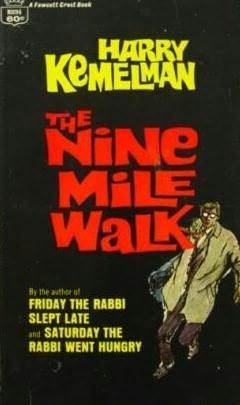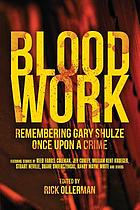Writing fiction might feel like working in a vacuum because so much of the time the author is sitting alone in front of a computer, typing away. Even if the writing occurs in a public place, the writer is essentially toiling alone (except for the voices in her head). But we all need help from time to time, and it's a wondrous thing to work in an industry--the mystery community--where people are willing to help others, even eager to do it. They were helped along the way, and they like to give back by helping others.
Take Barbara Ross. She's a mystery writer from New England. Last month she gave a presentation to my local Sisters in Crime chapter in Virginia about promotion--what works and what doesn't. We didn't pay her to do this. She was going to be in the area and has a bit of expertise in this subject and didn't mind spending a chunk of her day sharing her knowledge with others, so she did. Mystery writers do things like this for others all the time. Heck, it's what so many of the blog posts here at SleuthSayers aim to do: help other writers. To all the Barbara Rosses out there, thanks.
There are other people we writers often turn to for assistance: subject-matter experts. I was reminded of this recently when I was answering a question posed to me about my newest short story, "Till Murder Do Us Part." The question was: Do police officers really use peppermint-scented masks to avoid terrible odors at death scenes. (A sheriff's chief deputy wears just such a mask in my story.) And my answer was yes, some do. I got the information from a subject-matter expert who gives his time, free of charge, to help authors get details right. It's also how I knew to call this particular character a chief deputy. So to Lee Lofland and all subject-matter experts who help authors get their lingo and other details right, thank you.
 You don't have to be a professional in any particular field, however, to have useful information for an author. Personal experience can be wonderfully helpful. When I was writing "Till Murder Do Us Part," I needed to know what it looked, smelled, and sounded like when a cow exploded. There's only so much information I could find online. I needed someone with personal experience to answer my questions. Bless my Facebook friends; they came through. None of these people are farmers, but they all spent time on farms growing up, had firsthand knowledge with exploding cows, and didn't mind providing pertinent details. So thank you to my friends Bob Harris, Gwen Mayo, and Teresa Wilder for their help with these details. And thank you to everyone I know who has, over the years, shared personal information that enabled me to get details right. Everyone is an expert in their own lives, after all. You just need to know who to ask about what.
You don't have to be a professional in any particular field, however, to have useful information for an author. Personal experience can be wonderfully helpful. When I was writing "Till Murder Do Us Part," I needed to know what it looked, smelled, and sounded like when a cow exploded. There's only so much information I could find online. I needed someone with personal experience to answer my questions. Bless my Facebook friends; they came through. None of these people are farmers, but they all spent time on farms growing up, had firsthand knowledge with exploding cows, and didn't mind providing pertinent details. So thank you to my friends Bob Harris, Gwen Mayo, and Teresa Wilder for their help with these details. And thank you to everyone I know who has, over the years, shared personal information that enabled me to get details right. Everyone is an expert in their own lives, after all. You just need to know who to ask about what.For instance, if you need information about writing, ask some writers. Just today, I had a friend who was feeling down because she hasn't yet had luck selling her first novel. (It's great--I've read it--but sometimes these things take time. Not every agent is right for every author and book.) I figured it might help her to hear from other authors who had a lot of rejection before they had success, so I asked my Facebook friends to share their stories. And did they. About thirty authors shared their stories of querying and querying and querying until, finally, they had success.
 | ||||||
| Not the right paper for professional queries, but very pretty |
Three of these authors sent out more than 400 queries each, and for two of them, when they finally got published, their first book was nominated for major awards. These are perfect examples of the importance of persistence. Hearing these personal stories helped my friend, and my heart was warmed that so many people shared what some might think is embarrassing information in order to help another writer have confidence to continue querying. Rejection is just a step on the journey to success, but it's never easy. So to all my fellow authors who shared their stories on my Facebook page yesterday, and to authors everywhere who regularly share their insights to help others get published, thank you.
The list of people to thank feels endless, which is lovely, because it shows that wherever you turn, there are helpful people. Thank you to the agents, editors, and publishers who have taken a chance on me and other writers. Every one of us was new at some point and needed someone to give us our big break. Thank you to all of you who've done that.
Thank you to the bookstores, librarians, reviewers, and bloggers who buy our books and share them with the world. You help make our dreams come true. And finally, we authors would be nowhere without readers. You buy our books, enabling us to buy our food and feed our dreams. So thank you.
Before I end, a little BSP with a little more thanks thrown in: First, the launch party for Chesapeake Crimes: Fur, Feathers, and Felonies (in which I have my cow story, "Till Murder Do Us Part") is this Sunday, May 20th, at the Central Library in Arlington, VA, from 2 - 4 p.m. If you're in the DC area, I hope you'll come to the event and share in our celebration. Books will be sold and snacks will be served.
Second, this past week I was honored to have my short story "Whose Wine Is It Anyway?" nominated for an Anthony Award, along with stories by fellow SleuthSayer Art Taylor and authors Susanna Calkins, Jen Conley, Hilary Davidson, and Debra H. Goldstein. You can read my story on my website by clicking here. Art's story is available here. Debra's story is available here. Hopefully Susanna's, Jen's, and Hilary's stories will be available to read for free online soon. In the meanwhile, you can buy the books these stories were published in. Congratulations also to SleuthSayers Thomas Pluck, nominated in the best paperback original category, and Paul Marks, nominated in the best anthology category.
Thank you to everyone who took the time to send in ballots for the Anthony Award nominations, and especially thanks to everyone who listed my story on their ballot. With so many good stories published each year, receiving an honor like this is, well, an honor. A true honor. So ... thanks.
If you have someone you'd like to mention or thank who helped you on your life's journey, I welcome you to do it in the comments. And thanks for reading.



























